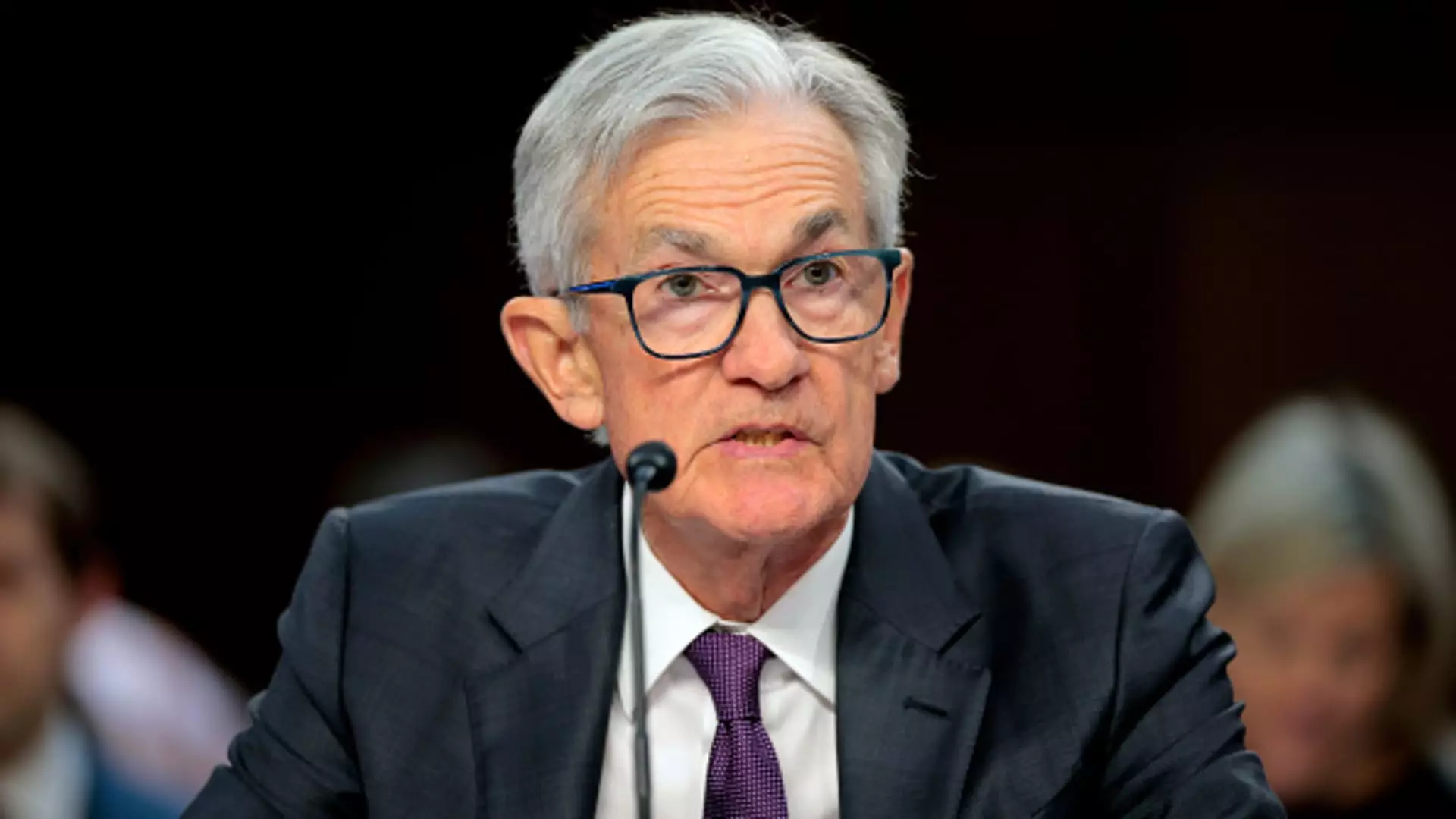The latest CNBC Fed Survey has unveiled a disheartening shift in economic sentiment among prominent financial experts. Respondents have raised the risk of recession to a staggering 36%—the highest level recorded in six months. This is significantly up from the 23% risk reported in January, which was a more optimistic period buoyed by the initial excitement surrounding the election of former President Trump. The decision-makers in finance—fund managers, strategists, and analysts—are now expressing a sense of apprehension that mirrors the anxiety felt across consumer and business sectors.
The very fabric of economic optimism, which once seemed to be woven during Trump’s early presidency, is beginning to fray. One could almost hear the chorus of concern echoing through the halls of Wall Street: “What has gone awry with fiscal policies?” The fear is palpable. It appears that trade policies, especially tariffs, have risen to the forefront of worries, surpassing inflation as the primary threat to the U.S. economy. The ramifications of these tariffs may seem distant to the average consumer now, but financial experts caution that their impact might soon ripple through all layers of economic activity.
Changing Economic Forecasts
With the increase in recession likelihood comes a stark downgrade in economic growth projections. The average GDP forecast for 2025 has plummeted to 1.7%, a steep drop from 2.4%. This shift halts a small streak of positive forecasts witnessed in earlier surveys dating back to September. While a bounce back to 2.1% is anticipated for 2026, the immediate future appears grim. This raises pressing questions: how do we reconcile this dire outlook with a federal reserve seemingly poised to cut interest rates?
There seems to be a paradox in the economic forecast; while the Fed is expected to cut rates to stimulate growth, fears surrounding tariffs cast a shadow on any potential recovery. The analysis from Neil Dutta at Renaissance Macro Research underscores this dilemma, noting that consumer spending faces significant risks as sectors like housing stall and state/local governments tighten their fiscal belts. The concern is not merely transient; it hints at a longer-term struggle that could ensnare various facets of the economy.
The Dilemma of Tariffs
In light of this complex economic landscape, over 70% of the survey respondents view tariffs as fundamentally detrimental to inflation, jobs, and growth. While some speculate that tariffs might not trigger a widespread inflationary outbreak, others assert that their consequences on industries—particularly manufacturing—could be irrevocable. Approximately 34% of respondents predict a decline in U.S. manufacturing due to tariffs, while a smaller segment still holds out hope for an increase in manufacturing output. This division almost exemplifies the larger ambiguity enveloping U.S. economic policy.
Mark Zandi, chief economist at Moody’s Analytics, captures the precarious nature of our current trajectory succinctly: a concoction of a global trade war, disorganized cuts to government jobs, and contentious immigration policies could nudge what was once a flourishing economy into a recession. The intertwining factors present a scenario that is more than just economic policy—it’s a systemic challenge that requires deliberate, well-structured intervention.
The Role of the Federal Reserve
As uncertainty mounts, the Federal Reserve finds itself in a challenging position. With many experts predicting at least two cuts to interest rates this year, Fed Chair Jerome Powell appears to be caught between a rock and a hard place. Should he react to rising unemployment spurred by trade policies, he risks moving prematurely if tariffs were to be rescinded. The wide range of opinions reflects not just uncertainty among experts but also a broader confusion surrounding economic indicators, leaving policymakers with an uphill battle.
In this politically charged atmosphere, where tariffs serve as a pivotal battleground, the stakes feel alarmingly high. Predictions regarding the economy are no longer just calculations; they carry emotional weight—like barometers of societal health. The apprehension ballasts an already fragile economic landscape, yet it is fully supported by data that could all too swiftly become reality. Financial professionals and the general public alike are left to ponder: will these looming risks dissolve into mere panic, or will they manifest as a formidable recession that reshapes America’s economic foundation? The answer hangs in the balance, tinged with anxiety and the promise of strive.

